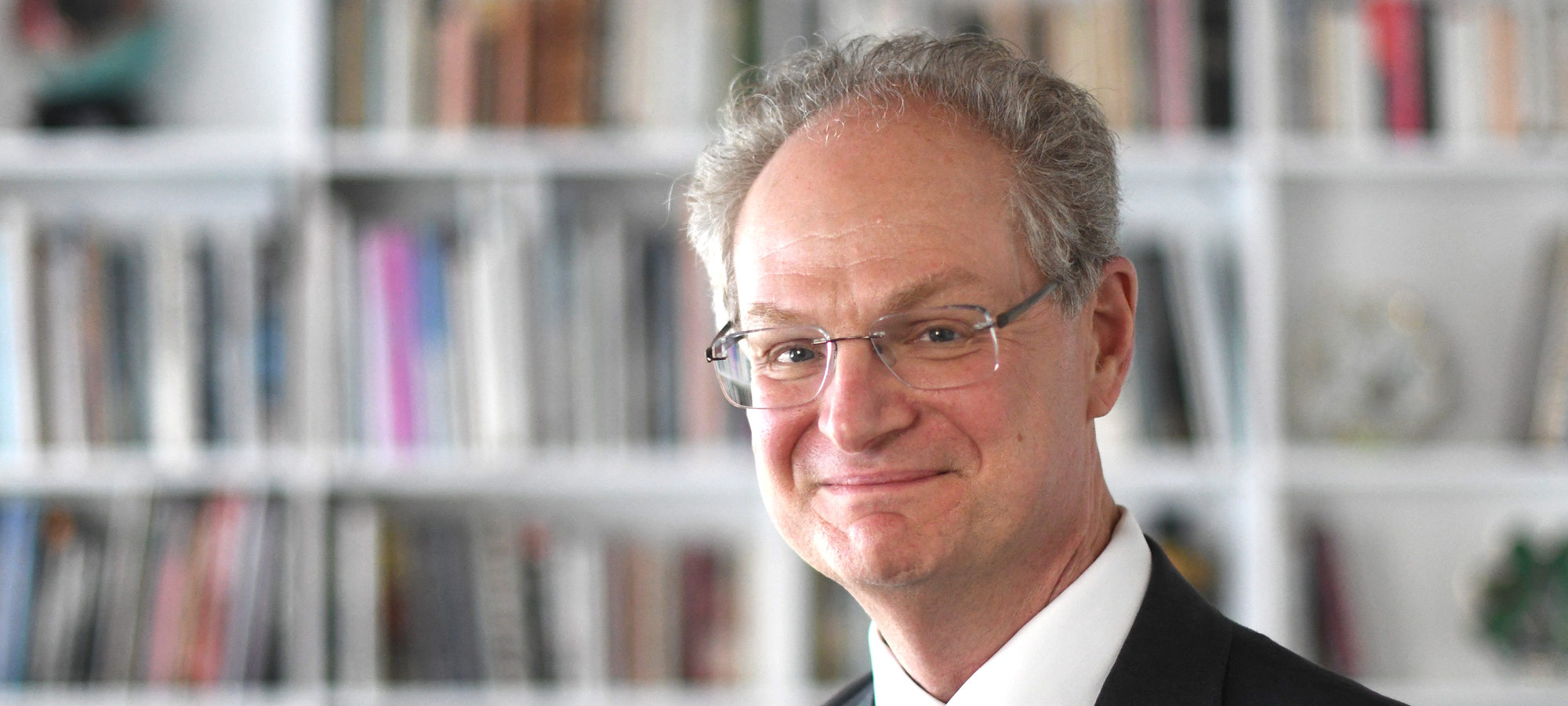
Paul Alivisatos, AB’81, will be the second University alumnus to serve as president. (Photography by Chris Polydoroff)
UChicago alumnus Paul Alivisatos, AB’81, takes office in September.
The University of Chicago’s Board of Trustees has named Paul Alivisatos, AB’81, as the University’s 14th president.
An accomplished leader in higher education and a world-renowned scientist, Alivisatos, 61, currently serves as executive vice chancellor and provost at the University of California, Berkeley. He is the Samsung Distinguished Professor of Nanoscience and Nanotechnology in the Department of Chemistry and the former director of Lawrence Berkeley National Laboratory.
Following an international search, Alivisatos was elected president at a meeting of the Board of Trustees on February 25 and will assume his role on September 1. Alivisatos will succeed Robert J. Zimmer, who has served as president since 2006 and will transition into a new role as chancellor of the University on September 1 (see “Defining Figure,” page 26).
“Throughout his distinguished academic career, Paul has demonstrated the skills and imagination needed to be an inspirational leader, confront the challenges of our time, and guide the University of Chicago during a period of enormous opportunity,” says Joseph Neubauer, MBA’65, chair of the Board of Trustees, who led the presidential search.
A native of Chicago, Alivisatos will become only the second University graduate to serve as president. The first, Edward H. Levi, LAB’28, PhB’32, JD’35, led the University from 1968 to 1975.
“I am honored for this opportunity to lead the distinctive intellectual community at the University of Chicago, a special place that was so transformative in my early education and guided me throughout my academic career,” says Alivisatos. “I look forward to partnering with members of our campus and South Side communities, who are so integral to the University’s role as a great research university in one of the world’s greatest cities.”
As Berkeley’s executive vice chancellor and provost, Alivisatos has been responsible for the planning, development, implementation, and improvement of campus academic programs and policies. Since taking the role in 2017, he has supported new initiatives to increase diversity among students, faculty, and leadership and has been deeply engaged in issues of free speech and social justice. In addition, Alivisatos led a campus-wide initiative that created immersive learning projects and discovery experiences for students, while starting a series of forums that promoted faculty mentoring of graduate students. During his tenure, Berkeley also launched a new division focused on data science.
Alivisatos oversees a significant development portfolio as provost. Annual giving to Berkeley exceeded $1 billion in 2020, with Alivisatos stewarding more than $450 million in gifts from 2016 to 2020. As director of Lawrence Berkeley National Laboratory from 2009 to 2016, Alivisatos guided the US Department of Energy lab through a period of transformational change, creating new programs in biosciences, renewable energy, and entrepreneurship. From 2016 to 2017, he served as Berkeley’s vice chancellor for research.
A scientist and entrepreneur, Alivisatos has made pioneering research breakthroughs in nanomaterials. His inventions are widely used in biomedicine and QLED TV displays, and his scientific advances have yielded more than 50 patents. He also founded two prominent nanotechnology companies: Nanosys Inc. and Quantum Dot Corporation (now part of Thermo Fisher Scientific).
“The University of Chicago is characterized by a distinctive approach to our work of research, education, and impact, and we share ambitious aspirations for the future,” Zimmer says. “Paul Alivisatos is superbly equipped to serve as president of the University in a way that honors its legacy while building upon it for the next generation of scholars and students. This outstanding choice will serve the University community and our partners locally and around the world well in the coming years.”
In his nearly 15-year tenure as president, Zimmer increased the University’s eminence and helped raise its stature among the world’s top research universities. As chancellor, Zimmer will focus on high-level strategic initiatives, stewardship of key relationships, and high-level fundraising.
As part of the presidential search process, the Trustee Search Committee and Faculty Advisory Committee received recommendations and feedback from the University community and friends of the University. The Faculty Advisory Committee also conducted dozens of listening sessions with faculty, students, alumni, staff, and former University presidents.
“In Paul Alivisatos, we believe we have found a collaborative and inspiring leader who is deeply committed to excellence, including our support for the high ambitions of faculty, students, and other members of the University community,” says Robert J. Rosner, the William E. Wrather Distinguished Service Professor of Astronomy and Astrophysics and Physics, who chaired the Faculty Advisory Committee.
Among his more than 25 awards and honors, Alivisatos has received the National Medal of Science, the Wolf Prize in Chemistry, and the Priestley Medal. He is a member of the National Academy of Sciences, the American Academy of Arts and Sciences, and the American Philosophical Society.
After receiving his bachelor’s degree from the University of Chicago, Alivisatos earned his PhD in chemistry from the University of California, Berkeley, in 1986. He joined the Berkeley faculty in 1988 as an assistant professor, and was appointed associate professor in 1993 and professor in 1995.
Alivisatos is married to Nicole Alivisatos, a retired chemist and former editor of the journal Nano Letters.
